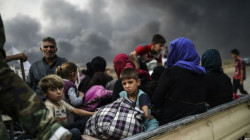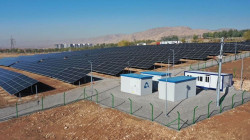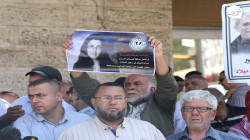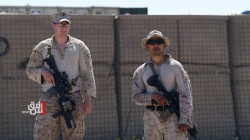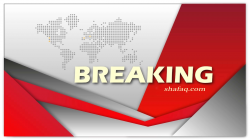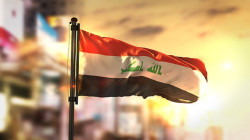Iraq on the frontline: US interests targeted by factions, Baghdad's financial protection for Washington at risk
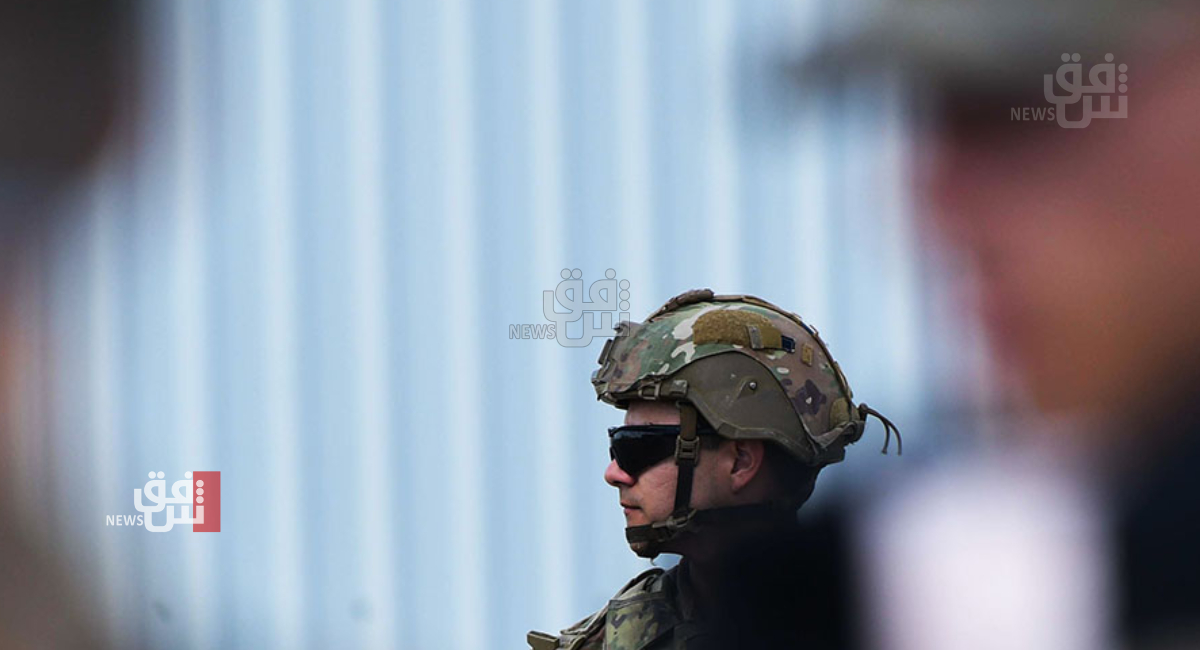
Shafaq News / Against the backdrop of escalating tensions in the Middle East, the United States' steadfast support for Israel during its conflict with Hamas in Gaza has elicited responses from armed factions in Iraq. These factions have started targeting US military bases and interests within the country.
Analysts and experts express concerns about the potential implications of these developments, especially regarding the American military presence in Iraq, which is safeguarded through intricate, long-term agreements. This situation raises fears of a possible confrontation between the Iraqi government and various militias operating in the region.
For instance, the Ain al-Assad base, situated in western Iraq, was the target of a rocket barrage, details of which were reported by a security source to the Shafaq News Agency, including the use of Grad rockets.
Furthermore, the "Islamic Resistance in Iraq," a coalition of Shia armed factions, claimed responsibility for an attack on "al-Tanf" military base, an integral part of the Global Coalition against ISIS in Iraq and Syria. This assault, executed with the precision of three drones, was reported to have hit their intended targets directly.
Adding to the complexity of the situation, American military bases, including "Ain al-Asad" in al-Anbar governorate and "Harir" in Erbil, both housing US military personnel, were targeted by drone attacks on a separate occasion.
These acts of aggression mark the initial response of armed Iraqi factions to the ongoing events in Palestine, further exacerbated by the recent targeting of Al-Muaddamiya Hospital in Gaza, fueling regional tensions.
Moreover, the "Heirs' Formation" faction publicly assumed responsibility for a drone strike on the "Harir" base in Erbil, as part of the broader operations in support of the "Al-Aqsa Flood." Their brief statement read: "As part of the operations supporting the 'Al-Aqsa Flood', the US occupation base in northern Iraq (Harir base) was targeted with a drone at noon on Wednesday."
In tandem with these developments, Iraq's "Resistance Factions" recently declared the establishment of a joint operations room, aimed at supporting the "Al-Aqsa Flood".
While details remain undisclosed, this move Highlights the escalating tensions and the rapidly evolving situation in the region.
US interests are factions’ targets
In this context, Ihsan Al-Shammari, President of the Center for Political Thinking, highlighted the concerning developments, including the presence of armed faction leaders along the Lebanese-Israeli border and their involvement in a joint operations room led by Hezbollah. The recent drone attacks on the Ain al-Asad base in al-Anbar and Harir in Erbil, as well as statements from the military spokesperson for the Iraqi Hezbollah Brigades, have left little doubt that American interests, including the embassy and military bases, are now in the crosshairs for Iraqi armed factions.
Al-Shammari further expounded, suggesting that the recent contact between US President Joe Biden and Iraqi Prime Minister Mohammed Shia Al Sudani might be a direct response to these factional actions. It appears to be a clear message from the US, emphasizing Iraq's commitment to the Strategic Framework Agreement and its alignment with the US This situation is compounded by the knowledge that the current government is a coalition of armed factions supporting the Prime Minister while simultaneously posing a challenge to the US.
He concluded, "This is not merely a symbolic message; operations are already in motion. It is an attempt to exert pressure on the US However, the recent targeting of the Ain al-Asad base, as announced by the Global Coalition, suggests a heightened level of seriousness beyond a mere message."
Amidst these unfolding events, Muqtada Al-Sadr, leader of the Sadrist Movement, has called upon Arab and Islamic communities to stage protests at the borders with Israel in solidarity with the Palestinian people and in response to the ongoing developments in the Gaza Strip.
In response, Waad Al-Qadu, Member of the Parliamentary Security and Defense Committee and former leader in al-Hashed al-Shaabi (Popular Mobilization Forces-PMF), provided insights into the intricate regional dynamics, clouded in uncertainty. Much depends on the level of intervention by occupying forces and American aggression in the Palestinian issue, along with their support in this context.
Al-Qadu emphasized that "Islamic resistance and other Islamic factions share the responsibility of safeguarding sacred sites, including Al-Aqsa Mosque, the Kaaba, and holy shrines, in addition to all matters related to the lives of Muslims."
He stressed that the current situation in occupied Palestine, coupled with American intervention, may trigger responses from scattered resistance factions across various regions in opposition to American occupation.
He further emphasized that "all resistance factions are closely monitoring American interests wherever they may be, should they become involved in this matter. There have been indications of Washington's engagement in the Palestinian issue and its efforts to suppress this uprising and the peaceful Palestinian people."
Complex agreements
Iraqi politician Mithal Al-Alusi, a former member of parliament and the founder of the Ummah Party, raised a cautionary flag. He highlighted that the US is a major power with interests extending globally, acting as an ally of Israel in its current conflict. Simultaneously, the U.S. has played a pivotal role as an ally to Iraq, both militarily and in the fight against ISIS.
Al-Alusi also pointed out that Washington is currently protecting Iraqi funds abroad from the effects of international sanctions due to complaints from other nations and companies. Iraq faces a multitude of claims, potentially reaching trillions, and without American protection, no funds would have entered the Iraqi budget, possibly forcing the country to declare bankruptcy.
Moreover, he noted that targeting American bases in Iraq would force the government and militias into a confrontation because the U.S. presence in Iraq is supported by intricate, long-term agreements. Consequently, the government would be compelled to fulfill its obligations, preventing any armed group from attacking any official foreign presence in Iraq.
Al-Alusi concluded, "What is perplexing is whether the militias have now realized that America is an ally and partner of Israel, or have their interests caused them to turn a blind eye?"
